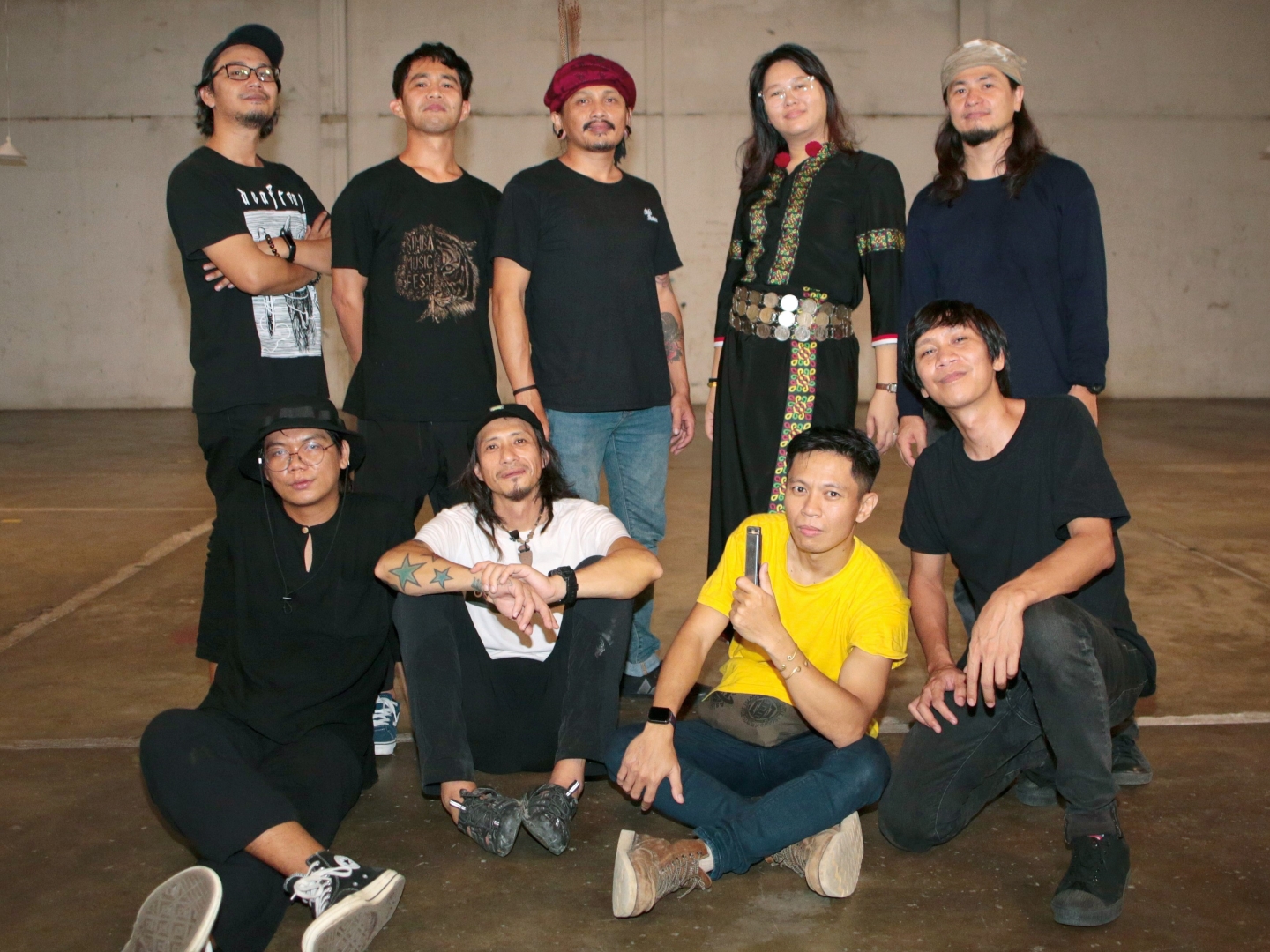
Pangrok Sulap is a Malaysian collective of artists, musicians and social activists with a mission to empower rural communities through art (All photos: British Council Malaysia)
The arts may not be able to solve issues like climate change but it can help bring experts working to do so together and amplify their efforts. “We want to break the silos and make space for conversations to happen,” Florence Lambert says of Culture Responds to Global Challenges, a new British Council programme that has three strands: climate change, inclusion, and cultural heritage and preservation.
Focusing on the first strand, British Council Malaysia, of which Lambert is head of arts, has started Human-Nature, a three-year programme that will involve collaborations and partnerships between UK groups and arts sectors and civil society organisations here, to explore and develop creative responses to climate adaptation.
“We will test and demonstrate how the arts can play a role in the climate adaptation story of Malaysia by enabling artists to understand the local context and issues, and address them. We don’t pretend to want to solve the problems because we are not a science organisation. We’re looking at climate through the lens of the arts by bridging the two. Of course, it means we are talking to the experts to have a deeper understanding of all the issues, such as identity and equitable representation.
“What we really want to do is break the silos because experts use [their own] language and we don’t always understand their language. The issues can be scary and demoralising, and it’s very difficult to imagine a positive future. We want to give a platform to voices that are first impacted by climate change, but who, through their cultural practices and ancestral knowledge, may hold the key to responses to climate adaptation. I feel we can look at the positive things that can come out of this and enable opportunities.”
For a start, a seven-member delegation comprising people who work at the intersection of arts and climate in the UK will come for a 10-day immersion research trip to Peninsular Malaysia, Kuching and Kota Kinabalu in March. Local groups Forever Sabah and Borneo Bengkel are helping put together their itinerary.
Subsequently, there could be a networking platform for those who share a common interest and advocacy, says Lambert, who wants to start talking to people who don’t get heard. There will be opportunities to be part of the Human-Nature programme through forums and discussions and meet the delegates. For now, “we will see how it evolves as we want this to be an organic process”.
flo_high_res_pic_1.jpg

Collaboration and cooperation are ongoing endeavours at the British Council, which recently announced nine arts projects in Malaysia that will receive support under its Connections Through Culture (CTC) grant programme, designed to nurture fresh cultural partnerships between East Asia and the UK.
The nine, among 76 chosen from nine countries for 2024, have been allocated over half a million ringgit to bring new ideas to fruition at any stage of development. The projects were selected from across various disciplines, including film, creative technology, literature, visual arts, theatre, dance, circus, architecture, design, fashion, craft and music.
This year, the CTC grants focus on two distinct areas: diversity and inclusion, and the arts as a tool to raise awareness of climate change. The latter is a “very urgent topic” that should be looked at with a holistic approach, Lambert thinks.
“Climate change cannot be just addressed with science and technology. It must also relate to community, beliefs and values, and that’s where the arts can play a role. It can help us reimagine scenarios and futures. It can tell the story and be a source of innovation.”
CTC was launched in 2019 and has been gaining traction since. “The collaborations exemplify the power of artistic exchange and open doors to new and exciting opportunities for artists on an international stage.”
Projects supported by the grants include art residencies, exhibitions, performances, publications, webinars and conferences.
Those who apply to CTC do not just benefit from the grant allocation. “It’s the entire process of learning how to apply, how to develop an idea of collaboration together, execute it and make it mutually beneficial,” Lambert says, noting that a number of recipients have been able to access additional external funding after this initial boost.
There is more good news for creatives seeking funds for their work. The British Council has opened applications for its International Collaboration Grants, a £1 million (RM6 million) programme that aims to foster innovative artistic and cultural collaborations between the UK and Malaysia.
Open call for International Collaboration Grants
Planning a project that will bring Malaysia- and UK-based groups together to strengthen artistic and cultural ties between both sides? How about a grant to help get you started?
The British Council welcomes applications for its International Collaboration Grants for projects on any theme but are committed to diversity, inclusion and environmental sustainability. Each piece of work has to emphasise explicit benefits to both the individual artist and international partners.
Recipients can get up to £75,000 (RM450,000) for their project, which must include at least one organisation based in the UK and another in Malaysia. To be eligible, the new partnership has to showcase genuine international collaboration.
To support potential applicants, the British Council is offering a comprehensive set of resources, including a toolkit with tips and insights into the £1 million grant programme’s context. There is also a feedback video to guide those interested on how to apply.
Applications closes on April 30. For details, see here.
This article first appeared on Feb 5, 2024 in The Edge Malaysia.


